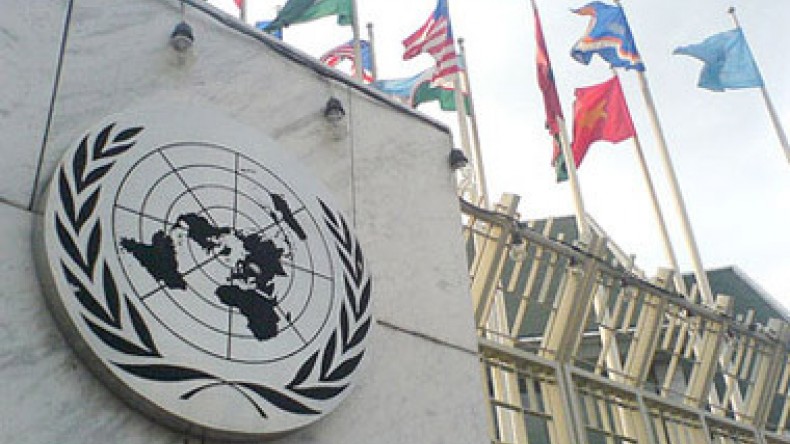
Letter by Armenian envoy to UN spread in Security Council
Irish Foreign Minister Eamon Gilmore has addressed the United Nations Security Council when he briefed the council on Ireland’s chairmanship of the Organization for Security and Co-operation in Europe on Thursday night, UN official website reported.
Security Council members, except Azerbaijan, have backed Irish initiative to challenge regional conflicts. Armenia’s envoy to UN Karen Nazaryan’s letter has been spread among the Security Council members. The letter particularly reads:
“It is unfortunate that Azerbaijan, a newly elected non-permanent member of the Security Council, uses the opportunity to present one-sided information on the Nagorno-Karabakh conflict, far not only from reality, but in full contradiction to the spirit of the negotiating process in the framework of the OSCE Minsk Group.
The statement of Azerbaijan is in stark contrast with the spirit of the Joint Declaration of the Presidents of Armenia, Russia and Azerbaijan made just last month in Sochi, underlining the readiness of the parties to speed up agreement on the Basic Principles offered by the mediators.
What is the sense of the Azerbaijani attempt to open discussions on the Nagorno-Karabakh issue in the Security Council or to change the terminology accepted by OSCE and used for a long time in the documents and statements of the OSCE? Using correct terminology to address the root causes of the conflict is one thing, but using terminology to change facts and distort the reality is a completely different matter.
Unfortunately, such behavior of Azerbaijan confirms that the only guiding line of this country was and remains the use of this distinguished tribune to distribute false facts, to misinform and misrepresent the process of the Nagorno-Karabakh conflict settlement. Despite its pledge before the UN Security Council “to the maintenance of international peace”, Azerbaijan is continuously threatening to use force against Nagorno-Karabakh and Armenia along with unprovoked daily war-mongering by its leadership and is dramatically increasing its military budget, is continuing ceasefire violations on the line of contact between Nagorno-Karabakh and Azerbaijan, systematically is employing acts of vandalism towards the Armenian historical and cultural heritage and this list goes on.
In response to the calls of the last two years by the UN Secretary-General, the OSCE and the Minsk Group Co-Chairs, Armenia and Nagorno-Karabakh responded positively to the proposals of withdrawing the snipers from the line of contact, to the consolidation of the ceasefire, to the creation of a mechanism for investigating incidents along the line of contact. However, Azerbaijan continues to reject the proposals of withdrawal of snipers and consolidation of ceasefire and continues to hinder the creation of investigation mechanism.
After the Joint Statements on the Nagorno-Karabakh Conflict by the Presidents of Russia, the USA and France at the G8 Summits in L’Aquila (2009), Muskoka (2010) and Deauville (2011) Armenia welcomed them and stated that we are ready to move forward on the basis of the principles and elements made in those statements. This proves that the approaches of the international community are in line with the approaches of Armenia.
Why does not the Permanent Representative of Azerbaijan recall those statements in his presentation? Simply because Azerbaijan refuses to accept them.
Perhaps it behoves Azerbaijan, in its newly elected role in the Security Council, to respect the work of that body and its members by refraining from provocative actions and statements.
Newsfeed
Videos






























